#lingq
Explore tagged Tumblr posts
Text
I'm a big fan of extensive reading apps for language learning, and even collaborated on such an app some 10 years ago. It eventually had to be shut down, sadly enough.
Right now, the biggest one in the market is the paywalled LingQ, which is pretty good, but well, requires money.
There's also the OG programs, LWT (Learning With Texts) and FLTR (Foreign Language Text Reader), which are so cumbersome to set up and use that I'm not going to bother with them.
I presently use Vocab Tracker as my daily driver, but I took a spin around GitHub to see what fresh new stuff is being developed. Here's an overview of what I found, as well as VT itself.
(There were a few more, like Aprelendo and TextLingo, which did not have end-user-friendly installations, so I'm not counting them).
Vocab Tracker

++ Available on web ++ 1-5 word-marking hotkeys and instant meanings makes using it a breeze ++ Supports websites
-- Default meaning/translation is not always reliable -- No custom languages -- Ugliest interface by far -- Does not always recognise user-selected phrases -- Virtually unusable on mobile -- Most likely no longer maintained/developed
Lute

++ Supports virtually all languages (custom language support), including Hindi and Sanskrit ++ Per-language, customisable dictionary settings ++ Excellent, customisable hotkey support
-- No instant meaning look-up makes it cumbersome to use, as you have to load an external dictionary for each word -- Docker installation
LinguaCafe

++ Instant meanings thanks to pre-loaded dictionaries ++ Supports ebooks, YouTube, subtitles, and websites ++ Customisable fonts ++ Best interface of the bunch
== Has 7 word learning levels, which may be too many for some
-- Hotkeys are not customisable (yet) and existing ones are a bit cumbersome (0 for known, for eg.) -- No online dictionary look-up other than DeepL, which requires an API key (not an intuitive process) -- No custom languages -- Supports a maximum of 15,000 characters per "chapter", making organising longer texts cumbersome -- Docker installation
Dzelda

++ Supports pdf and epub ++ Available on web
-- Requires confirming meaning for each word to mark that word, making it less efficient to read through -- No custom languages, supports only some Latin-script languages -- No user-customisable dictionaries (has a Google Form to suggest more dictionaries)
#langblr#languages#language learning#language immersion#fltr#lwt#lingq#vocab tracker#language learning apps
409 notes
·
View notes
Text
Mango v. LingQ v. Anki
I’ve been using the above apps for a while now and I couldn’t find a ton of somewhat easy to understand comparisons/explanations of how to use these various cult favorites. I figured I would make one if anyone is wondering where to start or making a departure from Duolingo.
Standard langblr disclaimer: I am ultimately just a person on the internet, I’m not an expert in language learning or a world renowned polyglot. I’m not even an expert in any of these apps/programs. These are all just thoughts and opinions I have about the value of each app to myself as an average consumer trying to learn a language and intended to help other people decide where to spend their time.
Anki
Anki is an open source spaced repetition flashcard program. It has an incredibly loyal fan base of med students and people who just want to learn things. This is also the one I have the least experience with so I recommend diving into forums and other blogs who go in depth on all the ways you can use this program. The web version is completely free and there is an official paid mobile app. There are also unofficial paid apps, this is the source of great drama and discourse and I’m not touching that here. Spaced repetition essentially means that the program will present you with cards at intervals designed to maximize your retention. When you flip over a card, you have four options that boil down to: fail, hard, good, easy. This is how the program determines what to show you and when.
Key Features:
The main draw is obviously the spaced repetition system. It’s much easier and more effective than sorting manually.
Because it’s open source, there is a way to customize the settings and cards to do basically whatever you want. There are also tons of premade decks to import and either use as-is or use as a base.
The online web version is completely free.
You can add really any media type to the cards. You can add sound clips of pronunciations, images, even drawings and diagrams.
Having the four options is particularly useful for the nuances of learning a language. For example, for general vocabulary decks I’ll assign one “point” to general meaning, tense/part of speech, and pronunciation. Getting the general meaning but not the other two means I select “hard” when I flip the card.
Best uses:
Vocab or learning a new alphabet. Specifically for drilling any of those “slippery” words. I don’t know if this happens to anyone else, but there are some vocab words that just refuse to stick with me. I’ve found the Anki SRS does help pin them down.
Potential downsides:
While there are decks to import, there could always be errors that you won’t catch just seeing single vocab words with no context.
The available customization is labor intensive.
The UI for the official app and web version isn’t super slick and intuitive.
Even the best flashcards are ultimately just flashcards and have limits to their usefulness.
Mango
Mango is similar to Babbel or other programs that focus on speaking (and doing so quickly). I much prefer Mango to Babbel or any other similar app and find that it does what it says it will. Languages are split into units. Each unit has chapters and each chapter has lessons. A lesson will start with an optional pre quiz and a brief recording of a conversation that you will be able to follow by the end of the lesson. Each lesson concludes with a listening and reading quiz. It also utilizes spaced repetition and gives you daily flashcards to review.
You learn based on phrases rather than individual words. A long sentence will be presented in its entirety. The lesson will then go through each word individually before combining them into phrases and, finally, the full sentence from the start. Then you will learn vocabulary needed for variations. The activities are fairly standard for a language app: speaking, listening, multiple choice. You can also turn off the interactive feature and have the lesson run as a “speak and repeat” style podcast. It tracks the hours you’ve spent learning a language and there is an activity log, but no in depth stats.
Key features:
It is focused on speaking immediately.
Has a ton of languages and several dialects for those languages.
Focuses on phrases and patterns that are most useful if traveling or having brief, friendly interactions.
Presents information in a digestible way and isn’t overwhelming.
Includes culture and grammar notes.
$12.99 a month but most public libraries and schools give you free access. You can also set up a household account for multiple people and split the cost with friends/family.
The first lesson of any language is free, and some rare and indigenous languages are completely free to access.
Audio is native speakers. When you record yourself, your vocal wave pattern appears that you can compare with the native speaker.
Best uses:
If you are traveling soon and want to navigate basic, friendly interactions, this will get you there quick. Within 1-3 months easily, depending on the language and how often you practice.
I also recommend this as a starting place when you are totally new to a language or to learning a language in general. The structure is excellent for getting a feel for things.
This is also great if you studied a language previously and need to refresh your memory or get back into it.
Potential downsides:
The “record yourself” feature is fairly buggy and often freezes up. It can also be annoying to try and match the timing of the native speaker, but you don’t have to record audio to progress past those lesson points so it isn’t too much of an inconvenience.
It isn’t meant for total fluency. As stated, the lessons (at least that I have done) are focused on speaking while traveling and making small talk. Some of the early lessons teach you to say “sorry, I don’t speak [x]”. Which is very useful if going abroad soon, but less so if you would rather just be able to speak that language.
The regimented nature can make it feel slow/too easy if you are also using other methods.
The review flashcards only have a binary “yes/no” option which feels annoying for longer phrases or after using Anki-style cards.
With any course like this, you aren’t going to have much choice in the vocab you learn or prioritizing topics.
LingQ
I am honestly surprised I don’t see more about this. I think they have been making a bunch of updates recently so maybe the version I’m using is miles above previous ones, but it is shockingly powerful. It’s also the hardest to explain (which may be why I don’t see much written about it and why this is going to be a long section.) LingQ (pronounced “link”) operates on a hybrid comprehensible/massive input model. While Anki prioritizes memorization and Mango priorities speaking, LingQ focuses on comprehension and listening. LingQ is comprised of courses which are made up of lessons. There are pre-built courses made by LingQ but the real goal is to make your own (more on that later).
Each lesson within a course has an audio recording and a written transcript. Words you haven’t seen before are highlighted blue (when you start, that’s every word). You click the word to see the definition and assign it one of 5 statuses: ignore, new, recognized, familiar, learned, or known. “Ignore” is used for things like names or borrowed words, they won’t be counted in your stats. “Known” is for words you knew before seeing them. You likely won’t have any of these if you’re starting a new language with no prior experience. Levels 1-3 highlight the word yellow and it becomes a LingQ. You can create a LingQq using as many words as you want. You can manually change the status of a word when you see it. You can also do various review activities similar to Mango, and if you get a word right twice in a row it will automatically bump up a level. You can always adjust it back down if needed. LingQ is very focused on the value of listening to a language. You can add lessons to playlists and listen to them like a podcast.
My personal favorite part of LingQ is the ability to import lessons. Especially YouTube videos. The site has a browser extension that will import any content in your target language into a lesson as an embedded item. You can then read/listen to/watch that content right in the app and get “credit” for it. LingQ’s statistics are some of the coolest/most motivating I’ve seen. You get coins for completing tasks but those are really just to see a number get bigger. It also tracks the words you’ve read, how many words you know, the hours listened, and speaking/writing if you utilize their tutor marketplace or writing forum.
The free trial is very limited but it’s enough to poke around and get a feel for things before signing up, not necessarily to learn anything substantial. The monthly membership is $12.95 and there’s a $199 lifetime option as well. I definitely recommend spending some time playing around at the free level and then upping to monthly if you like it.
Key features:
The ability to import lessons. It will also create a simplified version of shorter content. This is an AI generated summary of whatever you’ve imported. I use this for videos where natural speaking cadence can make it hard to parse things sometimes. It’s easier/more productive if I know generally what’s going on.
The creation of LingQs. I just think it’s a really cool and useful way to approach comprehensible input. You can visually see the yellow fading as you understand more and more of a lesson.
You can export LingQs to Anki (theoretically). I’ve never done this myself and I’ve seen some forum posts saying it doesn’t work super well all the time but it is a built in feature.
In-depth stats tracking and the ability to consume all the content easily in app. The stats would be annoying if it wasn’t literally easier to watch a video via LingQ than on YouTube.
Community features. There are community challenges (like Duolingo) but also a forum to submit writing that will be corrected by native speakers and a marketplace of tutors to easily sign up for speaking lessons. The forum is free and volunteer based, but scrolling through I didn’t see anyone who didn’t have at least one reply. The tutors are paid at an hourly rate and you can also pay by the word to have them correct written work.
Super flexible. There really isn’t any one right way to use this app so you can structure it however you like and set your own goals/metrics.
Playlists and focus on listening. It really does help to constantly be immersed in what a language sounds like, and being able to read and listen to the same thing has been so nice.
Actually decently helpful emails and not just spam.
Best for:
Hardcore language learners. The app/site provides some guidance on how to get started and the basic idea, but you’ll need to play around with it and spend some time reading forum posts or the emails they send to find what works for you.
Getting to higher levels of fluency after maxing out other apps/self study methods.
People looking to spend a lot of time on language learning because they enjoy it. This isn’t snarky, but there’s a difference between wanting or needing to learn Spanish to communicate at work or on vacation and just really enjoying learning languages. This is an app for language nerds.
Potential downsides:
Very overwhelming. They technically say you can jump right in with 0 knowledge of a language and be good to go, but I think it would be hard to make a lot of progress unless you’ve learned other languages before. If you’re looking to learn a new language for the first time, I recommend starting with Mango to get your bearings.
Doesn’t teach new alphabets. This isn’t a huge issue for Mango since it’s speaking focused, but I wouldn’t jump into Arabic or Russian on LingQ without spending some time learning the alphabet with other methods.
User generated definitions. This is a double edged sword. The definitions being linked to sites like Globse can lead to wrong definitions, but because you’re seeing things in context it’s easier to catch. And looking into what a phrase means is a great way to learn if you are really into languages.
The import feature isn’t 100% perfect when it comes to videos. It will only create a transcript when the video has captions enabled or a transcript provided, otherwise it just shows up as an audio file. It will also sometimes randomly just not be able to import a video which can be annoying, but in the grand scheme of things these are very minor annoyances.
Time commitment. The method doesn’t require a ton of actively sitting down and reviewing vocab or reading new words, but it does assume that you’ll swap out listening to music or podcasts while going about your day with listening to content in your target language. This is all well and good unless you really enjoy listening to specific content while doing tasks or need help not getting distracted. It’s going to be a lot of incomprehensible noise for a while before you can parse it. This might not be a downside as much as something to keep in mind when considering how effective it’s going to be for you.
Not as active of a community. Maybe it’s just for my particular languages, but there definitely aren’t a ton of people actively doing things like challenges. This really doesn’t matter much to me but it could be a bummer if you’re looking for that.
tl;dr just tell me how to learn things
If you need to learn a new alphabet, start with that. Otherwise, Mango to get your bearings, Anki to add to your vocab as you get bored with Mango, and LingQ to realistically get “fluent”. Then start writing and speaking either using tutors or people you know or local language groups.
#mine#long post#ref#reference#review#language apps#language resources#langblr resources#language learning#resources#arabic langblr#langblr#mango app#lingq#anki#studyblr#language app review#app review#flashcards#language#italian langblr#duolingo
37 notes
·
View notes
Text
I feel like LingQ would probably be very useful except that it's glitched somehow and I can't make any LingQs (free version lets you have 20 but every time I try to make one it says I can't).
Also I'm so sick of these language learning programs being 1) so expensive and 2) on a subscription service. You used to buy a whole course on CD for like $60 and you had it forever. Now you pay $120+ for a single year.
3 notes
·
View notes
Text
How I use LingQ.
So, for my very first post I'd like to talk about how I use LingQ (premium) to my best advantage. After using the platform for a while now, I can say that's probably the best I found for the acquisition part of a language. I do, however, think that it is a platform for people who already know some of their target language, as the platform functions in such a way it is practically simply immersion.
Who would benefit the most from LingQ?
Definitely A2-B1 learners. LingQ is absolutely fantastic for immersive, context-learning. It's great for vocabulary, but it is fundamental that, for German for instance, you understand grammar. I highly recommend it to be studied somewhere else. I'm a B1 in French and just using it for a few days already helped me with my vocab.
What's the best feature of LingQ?
Well, LingQ has a huge library on its own, but the fact that you can import lessons from wherever seals the deal to me. It's perfect for when you want to study from an YT video or a Netflix show even.
A plus!
LingQ offers a "writing exchange" experience for free. You can practice your writing skills in your target language. I do it to put use to the vocabulary I learnt in my lessons. The great thing is: a native will most likely correct you afterwards, and you can even import their correction as a lesson.
What are your thoughts on LingQ?
3 notes
·
View notes
Text
What Type of Language Learner Are You?

There are many ways to learn a language and you may just have your own styles and approaches in learning your target language, specifically Italian or Latin. Here are some common learning styles you might relate to:
The Social Learner: You thrive in group settings and benefit immensely from language exchanges and conversational practice. You prefer interacting with native speakers and other learners, and often use language learning as a means to make new friends.
The Analytical Learner: You love dissecting the language, understanding the rules of grammar, and building a strong foundation in the mechanics of the language. You often prefer structured lessons and enjoy the process of translating complex texts to grasp the nuances of the language. Also, you tend to ask many questions in class about the grammar rules, and sometimes, certain grammar rules may not even have a reason for their existence!
The Auditory Learner: You learn best by listening. Podcasts, songs, and dialogues are your go-to methods. Speaking and repetition play crucial roles in reinforcing your learning. If you are this type of learner, you usually excel in understanding spoken language and pronunciation. You might even pick up an accent along the way!
The Visual Learner: Visual aids like movies, flashcards, and charts are essential for you. You find visual context helpful in remembering vocabulary and grammar structures. Apps that incorporate a lot of visual learning tools are particularly appealing to them. Visualisation may help you remember new and foreign alphabets or characters easily if you put your heart and soul into learning the language.
The Kinesthetic Learner: You have the need to be physically involved in the learning process. This might involve writing out words repeatedly, using gestures to remember phrases, or moving around while reciting vocabulary. Engaging the body helps you to retain information more effectively.
The Solitary Learner: Prefers studying alone and using self-study resources. Books, apps, and online courses allow you to learn at your own pace, exploring the parts of the language that interest you the most without external pressure.
The Mixed Learner: Many learners do not fit neatly into one category but are a mix of different styles depending on their mood, the language they are learning, or their goals. If you are this type of learner, you tend to adapt your learning style to suit your needs, which can vary from one learning session to another. This versatile learning approach can be especially helpful in maintaining interest and motivation, as you're able to switch up your approach based on what feels most effective or engaging at any given time.
So, what is your language learning style?
Let us know in the comments.
#language learning#latin language#italian language#learning italian#learning latin#romance languages#language lessons#learning styles#language learner#languages#duolingo#lingQ#memrise
5 notes
·
View notes
Text
Student Teach Thyself: My Dubbed Podcast in Italian
Navigating the difficult task of teaching oneself Italian through the marvels of AI voice dubbing is a 21st-century twist on the ancient wisdom of “Physician, heal thyself.” That age-old saying, ripped from the heart of biblical narratives, pushes us towards self-reflection and repair before we set out to fix or guide others. When we apply this idea to the adventure of self-learning Italian — or…

View On WordPress
#11 labs#ai#ai voice#cccccc#chinese#communication#dubbing#foreign language#german#human meme#italian#learning#lingq#performance#Podcast#russian#soundcloud#spanish#translation#youtube
0 notes
Text
Forever frustrated with how hard it can be to have a simple conversation about people's different study methods on reddit.
Anyway thank you all for sharing your study methods, and what helped you, what you didn't end up clicking with, methods you've seen, all that stuff I appreciate you all
💜💜💜
#rant#i asked about if anyone used comprehensible input to study something on reddit. and a person responded the read using LingQ#which is a great study plan! thats not comprehensible input study material though in the comprehemsible input method sense#its only CI in the Refold sense that counts any immersion and looking up word translations as CI#;-; so i got no real responses#someone else said they were gonna avoid learning pinyin so they could learn chinese like native speakers....#and i didnt want to be the one to break the news many native speakers learn pinyin to TYPE#or bopomofo... but generally you should learn one of those to type.....
7 notes
·
View notes
Text
Turkish resources for @phoebastria-albatrus cause it’s not all gonna fit in a comment
The Delights of Learning Turkish coursebook by Yasar Esendal Kuzucu, the main thing I used to take me from beginner to intermediate level (I can give you the pdf or epub if you want)
Easy Languages/Easy Turkish youtube channel
searching movie scenes or short videos on youtube in Turkish with subs and translation like this video and then I would study the words and grammar in it and listen to the video/audio on repeat until I understood everything. You can do this with any Turkish audio or video that has a transcript. 10/10 recommend this method it’s a really great way to study a language. Ideally as a beginner pick a video or a section of a video that is 3 minutes or less. (I studied and memorized that linked video like 4 years ago and it still gets stuck in my head sometimes lol and I’ve never forgotten the words I learned from it)
I used LingQ and Assimil for a while but you can just find any Turkish text or short stories online you wanna read and study it with Google Translate or a dictionary or a browser extension that lets you click and translate words on web pages. What I like to do (at an intermediate level) is take articles on subjects I’m interested in in Turkish and then rewrite the whole thing down in a notebook and for the words I don’t know I put the translation down in brackets after the word and sometimes highlight them so like “…burada öğrendiğim (that I learned) bir şey, ehhh dinle, bazen kötü (bad) şeyler olabilir, ve sen hiçbir şey yapamazsın…”
playing Minecraft set to Turkish, I learned words from all the inventory items like kova (bucket) and elmas kılıç (diamond sword) and merdiven (stairs)
rewatching movies you’ve already seen in English dubbed into Turkish. You don’t need subtitles if you already know what the character said in the English version and then you can just focus on listening to the Turkish dialogue instead of getting distracted by English subtitles. I usually stream Turkish movies on https://jetfilmizle.nl/
reading fanfic in Turkish, the smuttier the more motivating to get through when you have to painstakingly google translate half the words lmaoooo (and then you learn all the naughty words 😈)
Turkish learning podcasts you can find on Spotify/Apple podcasts etc. are decent when you’re bored and on a long car drive
manga/comics are a great start for reading if you’re not up to reading whole novels in Turkish yet (simple manga/webcomics are about the reading level I’m at right now). link + link + link
lemme know you want Turkish tv series or music recommendations
3 notes
·
View notes
Text
Duolingo's doing some WEIRD shit right now. Put me Very Slightly ahead in the course again???
When i last checked in with this on tumblr i was at unit 6 of 28.*
I'm now... wait for it... on 12 of 32?!
I don't think that's "new and improved", duolingo. How about old and improved instead... i would like that, at least.
*(czech course, section 3)
#langblr#technically langblr#duolingo#yes yes duo's shit now well it's FREE and also i read things on lingq as well. if i see a textbook i will die#other things of note: all the little skill bubbles (??) seem dramatically decreased.#fairly certain there were two practice sections per unit before and now there's only one... strange#also keeping in mind that it counts completed units and not ones you're in the middle of. so technically i'm on 13 right now
1 note
·
View note
Text
Duolingo Alternatives by Language
Disclaimer: I haven't used or tested all of them. All resources have different strengths, e.g. Drops being designed for vocabulary. They often aren't full alternatives for Duolingo or formal classes. I just wanted to compile resources for all languages on Duolingo to make the switch easier, especially for the less popular languages.
Feel free to also check out my collection of free textbooks
If you want a more detailed resource list for any of these languages (or perhaps one not listed here) you can send me an ask and I can see what I can do.
Arabic
AlifBee
Arabic Unlocked
Beelinguapp
Bluebird
Busuu
Clozemaster
Drops
Infinite Arabic
Ling
LinGo Play
LingQ
Mango
Mondly
Qlango
Write It! Arabic
Catalan
Bluebird
Clozemaster
Drops
Ling
LinGo Play
LingQ
LyricsTraining
Mondly
Qlango
Chinese
Bluebird
Beelinguapp
Bunpo
Busuu
Chineasy
Clozemaster
Drops
Du Chinese
Hello Chinese
HeyChina
Immersive Chinese
Infinite Chinese
Ling
Lingodeer
LinGo Play
Lingopie
LingQ
Mango
Mondly
Pleco Chinese Dictionary
Qlango
Czech
Bluebird
Clozemaster
Ling
LinGo Play
Mango
Mondly
Qlango
Danish
Babbel
Bluebird
Clozemaster
Drops
Ling
LinGo Play
Lingvist
LingQ
Mango
Mondly
Qlango
Dutch
Babbel
Bluebird
Busuu
Clozemaster
Drops
Ling
LinGo Play
Lingvist
LingQ
LyricsTraining
Mango
Mondly
Say Something in Dutch
Qlango
Esperanto
Clozemaster
Drops
Esperanto12.net
Kurso de Esperanto
LingQ
Qlango
Finnish
Bluebird
Clozemaster
Drops
Ling
LinGo Play
LingQ
LyricsTraining
Mango
Mondly
Qlango
French
Babbel
Bluebird
Beelinguapp
Bunpo
Busuu
Clozemaster
Collins French Dictionary
Conjuu
Dr French
Drops
HeyFrance
Infinite French
Lilata
Ling
Linga
Lingodeer
LinGo Play
Lingopie
Lingvist
LingQ
Listen Up
LyricsTraining
Mango
Mondly
Nextlingua
Oxford French Dictionary
Qlango
TV5MONDE
Xeropan
German
Babbel
Bluebird
Beelinguapp
Bunpo
Busuu
Clozemaster
Collins German Dictionary
Conjuu
Drops
DW Learn German
Infinite German
Ling
Linga
Lingodeer
Lingopie
LinGo Play
Lingvist
LingQ
LyricsTraining
Mango
Mondly
Nextlingua
Oxford German Dictionary
Qlango
Xeropan
Greek
Bluebird
Clozemaster
Drops
Greek Alphabet Academy
Ling
LinGo Play
LingQ
Mango
Mondly
Qlango
Write It! Greek
Guaraní
Clozemaster
Guarani Ayvu
Haitian Creole
Bluebird
Mango
Hawaiian
Drops
Mango
ʻŌlelo Online
Hebrew
Bluebird
Clozemaster
Drops
Ling
LinGo Play
LingQ
Mango
Mondly
Shepha
Write It! Hebrew
High Valyrian
Valyrian Dictionary
Hindi
Bhasha
Bluebird
Beelinguapp
Clozemaster
Drops
Hindwi Dictionary
Ling
LinGo Play
LingQ
Mango
Mondly
Qlango
Hungarian
Bluebird
Clozemaster
Drops
Ling
LinGo Play
LingQ
Mango
Mondly
Qlango
Indonesian
Babbel
Bluebird
Clozemaster
Drops
Ling
LinGo Play
LingQ
Mango
Mondly
Irish
Bluebird
Clozemaster
Collins Irish Dictionary
Drops
Easy Irish
Ling
Mango
Teanglann
Italian
Babbel
Beelinguapp
Bluebird
Bunpo
Busuu
Clozemaster
Collins Italian Dictionary
Conjuu
Drops
Infinite Italian
Ling
Linga
Lingodeer
Lingopie
LinGo Play
Lingvist
LingQ
LyricsTraining
Mango
Mondly
Nextlingua
Oxford Italian Dictionary
Qlango
Japanese
Beelinguapp
Bluebird
Bunpo
Busuu
Clozemaster
Drops
HeyJapan
Hiragana Quest
Infinite Japanese
kawaiiDungeon
Ling
Lingodeer
Lingopie
Lingvist
LingQ
LyricsTraining
Mango
Mondly
Oyomi Japanese Reader
renshuu
Takoboto Japanese Dictionary
Todaii
Qlango
Write It! Japanese
Klingon
boQwl! Klingon Language
Klingon Translator
Write It! Klingon
Korean
Beelinguapp
Bluebird
Bunpo
Busuu
Clozemaster
Drops
Hangul Quest
HeyKorea
Infinite Korean
Ling
LinGo Play
Lingopie
Lingodeer
Lingvist
LingQ
Mango
Mondly
Qlango
Write It! Korean
Latin
Bluebird
Cattus
Clozemaster
Collins Latin Dictionary
Grammaticus Maximus
Latinia
Legentibus
LingQ
Mango
Mondly
Perdisco
Qlango
Vice Verba
Navajo
Navajo Language Renaissance
Navajo Language Program
Speak Navajo
Norwegian
Babbel
Bluebird
Clozemaster
Drops
Ling
LinGo Play
Lingvist
LingQ
Mango
Mondly
Mjolnir Norwegian
Norskappen
Qlango
Polish
Babbel
Bluebird
Busuu
Clozemaster
Drops
Ling
LinGo Play
Lingvist
LingQ
LyricsTraining
Mango
Mondly
Qlango
Portuguese
Babbel
Beelinguapp
Bluebird
Bunpo
Busuu
Clozemaster
Collins Portuguese Dictionary
Drops
Infinite Portuguese
Ling
Lingodeer
Lingopie
LinGo Play
Lingvist
LingQ
LyricsTraining
Mango
Mondly
Nextlingua
Qlango
Romanian
Bluebird
Clozemaster
Drops
Ling
LinGo Play
LingQ
Mango
Mondly
Qlango
Russian
Babbel
Bluebird
Beelinguapp
Busuu
Clozemaster
Collins Russian Dictionary
Drops
Infinite Russian
Ling
Linga
LinGo Play
Lingopie
Lingodeer
Lingvist
LingQ
Mango
Mondly
Nextlingua
Qlango
Write It! Russian
Scottish Gaelic
Bluebird
Clozemaster
Go!Gaelic
Mango
Spanish
Babbel
Beelinguapp
Bluebird
Bunpo
Busuu
Clozemaster
Collins Spanish Dictionary
ConjuGato
Conjuu
Drops
Infinite Spanish
Ling
Linga
Lingodeer
LinGo Play
Lingvist
LingQ
Listen Up
LyricsTraining
Mango
Mondly
Nextlingua
Say Something in Spanish
SpanishDict
Qlango
Xeropan
Swahili
Bluebird
Bui Bui Swahili App
Clozemaster
Drops
Ling
LinGo Play
LingQ
Mango
Nkenne
Swedish
Babbel
Beelinguapp
Bluebird
Clozemaster
Drops
Ling
LinGo Play
Lingvist
LingQ
LyricsTraining
Mango
Mondly
Qlango
Turkish
Babbel
Beelinguapp
Bluebird
Busuu
Clozemaster
Drops
Ling
LinGo Play
LingQ
LyricsTraining
Mango
Mondly
Qlango
Ukrainian
Bluebird
Clozemaster
Drops
Ling
LinGo Play
LingQ
Mango
Mondly
Mova Ukrainian
Qlango
Speak Ukrainian
Vietnamese
Bluebird
Clozemaster
Collins Vietnamese Dictionary
Drops
Learn Vietnamese with Annie
Ling
Lingodeer
LinGo Play
Mango
Mondly
Welsh
BBc Cymru Fyw
Bluebird
Clozemaster
Say Something in Welsh
Yiddish
Bluebird
Clozemaster
Mango
Proste Yiddish
Roni Gal Learn Yiddish
Vaybertaytsh
Yiddish Book Center
Zulu
Bluebird
Nkenne
Bonus: Polygloss which claims to be available for all languages as long as there is another user also learning the same language
7K notes
·
View notes
Text
Japanese Apps instead of Duolingo
Beelinguapp
Bluebird
Bunpo
Busuu
Clozemaster
Drops
HeyJapan
Hiragana Quest
Infinite Japanese
kawaiiDungeon
Ling
Lingodeer
Lingopie
Lingvist
LingQ
LyricsTraining
Mango
Mondly
Oyomi Japanese Reader
renshuu
Takoboto Japanese Dictionary
Todaii
Qlango
Write It! Japanese
724 notes
·
View notes
Text
back to basics
mostly free resources to help you learn the basics that i've gathered for myself so far that i think are cool
everyday
gcfglobal - about the internet, online safety and for kids, life skills like applying for jobs, career planning, resume writing, online learning, today's skills like 3d printing, photoshop, smartphone basics, microsoft office apps, and mac friendly. they have core skills like reading, math, science, language learning - some topics are sparse so hopefully they keep adding things on. great site to start off on learning.
handsonbanking - learn about finances. after highschool, credit, banking, investing, money management, debt, goal setting, loans, cars, small businesses, military, insurance, retirement, etc.
bbc - learning for all ages. primary to adult. arts, history, science, math, reading, english, french, all the way to functional and vocational skills for adults as well, great site!
education.ket - workplace essential skills
general education
mathsgenie - GCSE revision, grade 1-9, math stages 1-14, provides more resources! completely free.
khan academy - pre-k to college, life skills, test prep (sats, mcat, etc), get ready courses, AP, partner courses like NASA, etc. so much more!
aleks - k-12 + higher ed learning program. adapts to each student.
biology4kids - learn biology
cosmos4kids - learn astronomy basics
chem4kids - learn chemistry
physics4kids - learn physics
numbernut - math basics (arithmetic, fractions and decimals, roots and exponents, prealgebra)
education.ket - primary to adult. includes highschool equivalent test prep, the core skills. they have a free resource library and they sell workbooks. they have one on work-life essentials (high demand career sectors + soft skills)
youtube channels
the organic chemistry tutor
khanacademy
crashcourse
tabletclassmath
2minmaths
kevinmathscience
professor leonard
greenemath
mathantics
3blue1brown
literacy
readworks - reading comprehension, build background knowledge, grow your vocabulary, strengthen strategic reading
chompchomp - grammar knowledge
tutors
not the "free resource" part of this post but sometimes we forget we can be tutored especially as an adult. just because we don't have formal education does not mean we can't get 1:1 teaching! please do you research and don't be afraid to try out different tutors. and remember you're not dumb just because someone's teaching style doesn't match up with your learning style.
cambridge coaching - medical school, mba and business, law school, graduate, college academics, high school and college process, middle school and high school admissions
preply - language tutoring. affordable!
revolutionprep - math, science, english, history, computer science (ap, html/css, java, python c++), foreign languages (german, korean, french, italian, spanish, japanese, chinese, esl)
varsity tutors - k-5 subjects, ap, test prep, languages, math, science & engineering, coding, homeschool, college essays, essay editing, etc
chegg - biology, business, engineering/computer science, math, homework help, textbook support, rent and buying books
learn to be - k-12 subjects
for languages
lingq - app. created by steve kaufmann, a polygot (fluent in 20+ languages) an amazing language learning platform that compiles content in 20+ languages like podcasts, graded readers, story times, vlogs, radio, books, the feature to put in your own books! immersion, comprehensible input.
flexiclasses - option to study abroad, resources to learn, mandarin, cantonese, japanese, vietnamese, korean, italian, russian, taiwanese hokkien, shanghainese.
fluentin3months - bootcamp, consultation available, languages: spanish, french, korean, german, chinese, japanese, russian, italian.
fluenz - spanish immersion both online and in person - intensive.
pimsleur - not tutoring** online learning using apps and their method. up to 50 languages, free trial available.
incase time has passed since i last posted this, check on the original post (not the reblogs) to see if i updated link or added new resources. i think i want to add laguage resources at some point too but until then, happy learning!!
#study#education resources#resources#learning#language learning#math#english languages#languages#japanese#mandarin#arabic#italian#computer science#wed design#coding#codeblr#fluency#online learning#learn#digital learning#education#studyinspo#study resources#educate yourselves#self improvement#mathematics#mathblr#resource
735 notes
·
View notes
Text
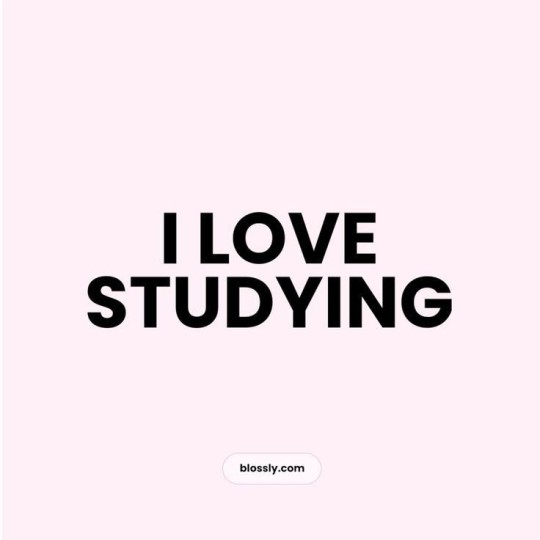
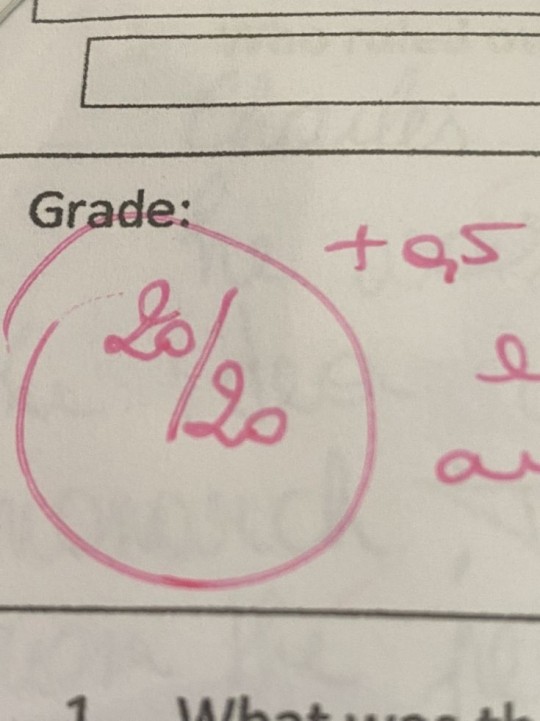
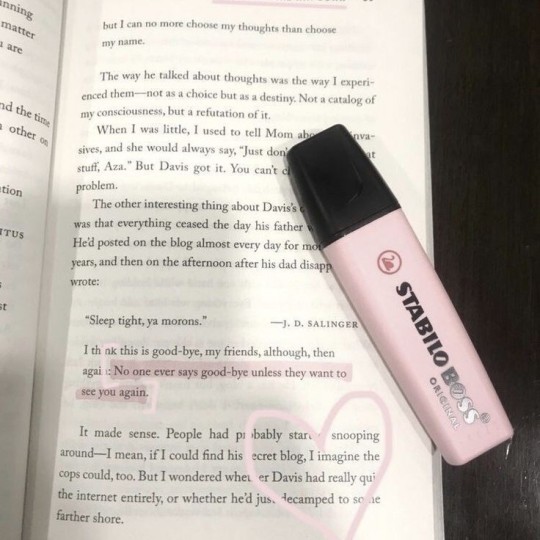
Language Resources 🎀
*that I currently use for studying Spanish. When I pick up studying Japanese again, I will make a list for that as well <3 I currently use a handful of resources for learning Spanish, and they've all proven very useful so far!
🩷 My Current Resources for Spanish
Busuu - hands down my favorite language learning app. So much better than Duolingo, in my opinion (especially for languages with a different alphabet/writing system). I bought the premium for a year, which will expire in Septmeber, but I'm debating renewing again because I love it so much.
LingQ - I like using this for reading in Spanish. It gives me different types of things to read about, and while I don't have premium, I do put all the words I don't know into flashcards on AnkiApp on my laptop and translate anything I don't know using SpanishDict.
SpanishDict - favorite translation/dictionary app. I know it has lessons you can use, tho I haven't tried it yet, but I really do love this app. It's super helpful when I'm making flashcards or writing random vocabulary notes.
Goodnotes - This is a general note-taking app, but I love it because it allows you to import and write on PDFs, and that's just perfect for me! I've downloaded free PDF short stories/children's stories in Spanish and made notes of words I don't know, and taken notes in the app too. Definitely my favorite notes app, ever.
Italki - I know this is a website, too, but I use the app. It lets you work with professional teachers/community tutors in your target language. You can have structured lessons or just use it for conversation practice. I did a trial lesson not too long ago and have an upcoming lesson booked out in about 5 days. You pay per lesson, so there is no subscription, and there are so many languages and teachers/tutors to choose from. I did a lot of research before choosing a teacher, and I'm very happy with my decision so far. Definitely useful if there's not native speakers near you or you're like me and not confident talking to people you know in your target language/their native language.
Quizlet/AnkiApp - I use AnkiApp more then quizlet, and the Anki I'm referring to is NOT the same way everyone else uses, but it's the flashcard app of preference at the moment. I tried the AnkiDroid app and hated it. But yeah, AnkiApp is useful for flashcards and I really like it. I have it on my Chromebook and my Ipad.
Netflix - I love watching shows in Spanish on Netflix so much. I am currently watching La Reina del Sur on it (used to watch that sporadically in the past at a friend's house) and plan on watching some other shows, including Elite.
Spotify - I enjoy listening to Spanish music and podcasts right now. The music is more of an entertaining/enjoyable fork of audio input, and the podcasts help me get a feel for speaking and pronunciation and I choose podcasts that speak on topics of interest tk help with vocabulary in those areas I'd like to be able to speak about.
Textbooks - I have 2 PDF textbooks, Gramatica de Uso del Español: A1-B2 and Gramatica de Uso del Español: B1-B2. I've heard these are great for learning Spanish (and they're both only written in Spanish, like there's no English in them) and plan on using them once I figure out how to take good and useful textbook notes! I definitely need to improve on my grammar.
Those are all my current Spanish resources! I'd definitely say my current level is like a high A1 right now, nearing A2, but I have just a little bit of work to do before I get there. These resources are definitely gonna help, tho!
#studyblr#study motivation#it girl#langblr#spanish langblr#study tips#language goals#that girl#langblog#language resources#foreign languages#language learning#language#langblr community#learn spanish#language learning goals#language studyblr#college studyblr#study blog#studying#language study tips#college student#student life#university student#language student#spanish#language learning tips#spanish studyblr#spanish language#study community
236 notes
·
View notes
Text
Italian Audio/Books/Videos Masterlist
Now that I’m at the upper A2/lower B1 level for Italian, I figured I’d compile a quick list of where I’ve found the best stuff to read and listen to.
E-Books and Audiobooks
Kobo Rakuten Italia — where I buy my ebooks. You can read them online, in the app, or download them and [redacted] to export them elsewhere. Has a monthly unlimited subscription that functions like a combo Kindle/Audible subscription.
Storytel — monthly subscription for unlimited access to audiobooks.
YouTube
Learn Italian With Lucrezia — truly the savior of anyone learning Italian. My favorite videos are her Q&As, vlogs, and “n basic phrases you need to know.” I don’t get much out of her grammar explainer videos but that’s because of who I am as a person.
NovaLectio — commentary style mini documentaries. I export them to LingQ to read before watching and it helps me parse what’s going on. Also, they upload some videos dubbed in English so you can watch both.
Vogue Italia — celebrity interviews and fashion content. About 50/50 Italian and English but obviously high production value.
ArtandtheCities — criminally underrated channel imo. 10-15 minute art history/industry videos by an art historian. Super interesting, she’s easy to understand, and has captions.
Chef Max Mariola — utter chaos but fun. A Roman chef cooking various dishes, sometimes with a guest. Gives very “your uncle is hosting Thanksgiving and forgot until yesterday” vibes but in the best way.
TV/Movies/Documentaries
RaiPlay (free!) — Italian version of PBS. Lots of documentaries and some kind of goofy soap operas/narrative shows. You can also watch live TV.
Podcasts and Radio
RaiPlay Sound — basically NPR. Also free! You can find podcasts, live radio stations, audiobooks, and even audio descriptions of movies and TV shows.
Articles
Formula 1 Italia — Formula 1 news. I’m a big Ferrari fan but they cover a lot of news/current events (as long as they can connect it to a driver). The writing is short and to the point so it’s easy to parse for beginners. And honestly the drama is better than a lot of TV shows.
Stile Arte — long, more complex articles about art and archaeology. Cannot recommend it enough if you have an interest in any of those things. There are some straightforward history articles at the B1/B2 level, and also some more creative essays that push C1.
Corriere della Sera — daily news site. I started reading the news only in Italian to keep me from doom scrolling because America is terrifying. This is just the site I have ended up using a lot. Mostly because it’s easy to navigate and they have a ton of content.
#langblr#ref#reference#langblr resources#italian langblr#italian language#italiano#italian reference#language master list#Italian master list#learning italian#mine
173 notes
·
View notes
Text
Android app for German Learning
Do note * - it is means that I use apps only with apk/premium unlocker, bc for one reason or another, free version of the app is not usable/not so great.
And yes, I have duolingo as well - but we all had it at some point, so heh.
LingoDeer*:
great for picking up vocab;
better prononciation than in Duolingo;
though it is quite better for asian languages.
Chatterbug:
German videos;
German "shorts" like Youtubes/TikTok one;
Learngerman DW:
Basically cheating, bc we all love DW here, and if you don't - check it out, it is really great;
Easy German:
Learn german by reading newspaper articles!
Seedlang*:
Similar to an old duolingo with its tree, but quite lacking w/o premium.
LingQ*:
Read, listen, add your own sites/apps/videos for it to create a captions in German!
Create flashcards.
Readle*:
Great app with a lot of short stories to test your reading skills;
little test at the end of each text to check if you understand what you have read;
Voice overs for every text!
Flashcards:
Better than Anki for me, since it is a lot easier to set up;
Avaliable voice overs for both sides of a flashcard.
Beelinguapp*:
App for reading!
Have a split screen and read 2 text (in your native & in German) at the same time;
Create flashcards~
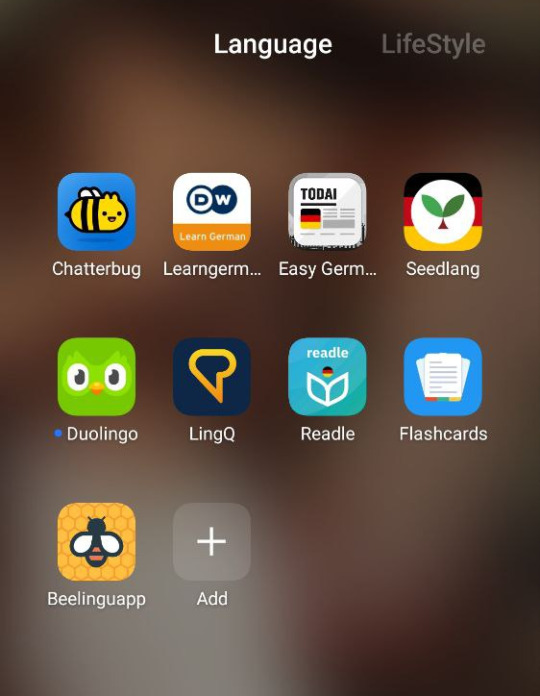
#german langblr#german language#german#german learning#langblr#language learning#deutsch#deutsch lernen#german study#learning german#android apps#android
298 notes
·
View notes
Note
привіт!
i do hope your requests are still open. i have a few needs for advice on transitioning. i am trans-ukrainian and i would love tips on transitioning :^)

Trans Ukrainian
Start with the Ukrainian alphabet (Cyrillic) ! Learning to read and write in Ukrainian is the first step to full immersion , Duolingo has Ukrainian , but better resources include : LingQ or YouTube channels like " Ukrainian With Anna " !
Ukraine has a rich and deep cultural history that you can bring into your daily life ! Learn about traditional holidays like Kupala Night (Ivana Kupala), Masnytsia (Pancake Week), or Malanka (Ukrainian New Year’s Eve Festival).
Food is one of the best ways to connect with culture ! Try cooking : Varenyky - Ukrainian dumplings (sweet or savory) Borscht – Famous beet soup, a staple dish ! Pampushky – Garlic bread rolls, perfect with borscht Kutia – A sweet wheat pudding eaten during Christmas Syrnyky – Fried cheese pancakes, amazing for breakfast !
Indulge in the art !! Decorate your room with traditional embroidery (vyshyvanka patterns) , dried flowers , or wooden carvings !
Explore Ukrainian folklore ! Stories of Mavka (forest spirits) , Domovyk (house spirits) , and Cossack legends !
Ukraine has beautiful rich history to explore , and indulging in it in your every day life is always key <3

#.ᐟ - my dear corpse ..#transid#transid coining#transid community#transid tips#transid transitioning#transid transition#transid transition tips#transid transitioning tips#rq 🌈🍓#radqueer#rqc 🌈🍓#rq#pro radqueer#pro radq#pro rq🌈🍓#radqueer safe#rqc🌈🍓#pro transx#pro rq 🌈🍓
16 notes
·
View notes